Is Sierra Leone Safe? 7 Essential Travel Safety Tips
Sierra Leone doesn't have a reputation as a tourist destination. But what are the real dangers for travelers, and how can you stay safe?
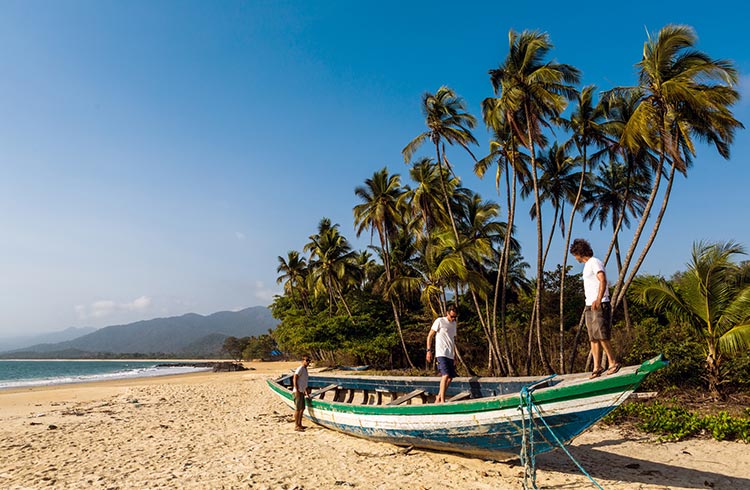 Photo © Getty Images/John Seaton Callahan
Photo © Getty Images/John Seaton Callahan
Opinions differ about the safety of travelers in Sierra Leone. According to official government warnings, it's a crime-riddled, corrupt and dangerously un-regulated country. However, many travel bloggers disagree, saying Sierra Leone is one of the friendliest places in West Africa known for its beautiful beaches.
The truth is, it's a bit of both, and your view of the country will be determined by your own personal experience.
The U.S. Department of State says to “Exercise Increased Caution” and the Australian, Irish and Canadian Government’s advice to their citizens is to “Exercise a high degree of caution”. Check with your Government’s travel advisory for the most up to date information.
Sierra Leone is one of the world’s poorest nations and experienced a civil war between 1991 and 2002. Economic development is still slow, and where poverty exists, inevitably so do high levels of petty crime such as pickpocketing and theft.
Sierra Leone is an adventurous rather than a traditional holiday destination. This may change in the future as conditions improve and the rest of the world wakes up to Sierra Leone's stunning beauty. Those who visit now are generally rewarded with warm hospitality and an almost tourist-free experience.
When traveling, take the phone numbers of anybody you think may be useful or helpful, including drivers, hotel workers, or government officials. People are usually happy to help and most problems can be fixed with a simple phone call. The most common cause of issues is cultural misunderstandings: try not to get worked up or angry as that can spiral into confrontation.
Here are a few of the specific challenges travelers may face while traveling in Sierra Leone.
- Safe transfers from Lungi Airport
- Safe transport options in Sierra Leone
- Road safety in Sierra Leone
- Crime in Sierra Leone
- Beach safety in Sierra Leone
- Local knowledge
- Travel health tips for Sierra Leone
1. Safe transfers from Lungi Airport
Lungi Airport is situated across a wide estuary from the capital, Freetown. There are three main ways of moving between the airport and Freetown.
By road
The drive between Freetown and Lungi Airport (via Port Loko) takes around three hours although the road is paved and in good condition. Taxis and buses operate from the main bus stations in Central and Eastern Freetown, but take far longer and do not run on scheduled timetables.
Kissy ferry
This is the cheapest (around US 0.50) and most popular form of transport for locals.
The government-owned ferry leaves from Kissy in the East End of Freetown, far away from most hotels and tourist attractions. The departure times rarely coincide with flight times. The maintenance standards of these vessels are poor and there is no safety equipment on board. However, the ferry is certainly the most interesting form of transport, as there are often comedians, singers, food and drink vendors, and even farm animals on board. Unlike the water taxis, the ferry is able to carry a limited number of vehicles. If you are late, small speedboats leave from the same ferry terminal throughout the day for a slightly higher fee. With either the speedboat or the ferry, leave plenty of time for delays.
In traveling from Freetown, you will arrive by boat at Tagrin and will need to take an additional taxi or motorbike taxi to reach Lungi Airport.
Water taxi
The most expensive but most popular form of transport for tourists and business travelers: there are at least four water taxi services that time their services with incoming and outgoing flights and deliver you either to the center of Freetown or around Aberdeen, close to the Lumley Beach and most of the tourist hotels. These are generally quite safe and include a bus transfer to/from the airport terminal. Sea Coach at Aberdeen appears to have the best amenities and the safest boats.
If your flight arrives late at night, you may wish to book a room at one of the Lungi Airport hotels – the official airport hotel is nearby but is quite expensive at around $80 per night. There are far cheaper local hotels and guesthouses available, some of which are of respectable quality.
If you are traveling to any city other than Freetown, it is quicker to proceed directly by road rather than spending time taking a boat across the estuary and then navigating your way out of Freetown. There are licenced taxis parked within the airport car park, or you can try your luck finding a taxi or motorbike on the main road outside.
2. Safe transport options in Sierra Leone
Traveling by road is probably the most dangerous part of visiting Sierra Leone. Your safest option is to get around via a privately owned or rented vehicle rather than public transport.
Private vehicle hire
4WD vehicles like Toyota Land Cruisers and Prados are widely available. These come with personal drivers and start at around US $60 per day (inside Freetown) and US $100 per day (countrywide). Flash Vehicles are popular and offer an Uber-like service via an app, and also rent vehicles by day, but there are many other similar providers such as AYK and Moliba Car Rentals. Many Sierra Leoneans rent out their vehicles for side income and can be marginally cheaper, although you have no safety or quality guarantees.
Due to the poor quality of the roads, it is hard to find vehicles for hire that are not 4WD. Taxis, some of which are well maintained, can be hired by day for around US $30 and upwards, although many are poorly maintained. Ex-pats living in country and hotels may be able to recommend taxi drivers, although there is no central database or mainstream taxi agencies.
Public transport
Public transport consists of kekes (motor tricycles), shared taxis, poda-podas (minibuses), and ocadas (motorcycle taxis)
Poda-podas are the cheapest form of transport but are poorly maintained, stop frequently, pack passengers tightly together like sardines and often smell like fish.
Ocadas are usually the most convenient form of transport but renowned for their reckless driving. Be very careful if you do take bikes and try to insist the driver provides you with a helmet. Look for drivers with well-maintained bikes and beware of drivers who look or smell drunk or intoxicated – they probably are.
Taxis often provide a relatively safe and comfortable compromise within Freetown. They ply set routes and you can either hop in with other people or offer to ˆ (charter) the entire vehicle and direct the driver wherever you want (try to agree the fee beforehand to avoid being ripped off. As a general rule, drivers will charge $4 to 5 per hour)
Outside of Freetown, taxis and minibuses travel between major routes and will generally contain more people than there are seats. Within provincial towns, motorbikes are often the only form of transport. Be aware of pickpocketing on public transport.
Most roads in Freetown, and all roads outside the main cities, are unlit, and travel on the highways outside of Freetown should be avoided after dark wherever possible. Travel beyond the provincial capitals can be problematic, due to very bad roads, poorly maintained vehicles and intoxicated drivers. There are no vehicle breakdown services in the country. Whenever you travel, try to keep copies of passports and insurance documents, and a list of phone numbers, for example of friends and hotels. In general, if you maintain basic caution, you should be able to travel relatively safely. The risk of violent crime on public transport is low, but mechanical problems and the propensity to cram in as many passengers as feasibly possible can hinder your journey. Wherever you meet a driver that is reliable and safe, it is wise to take their number for future use.
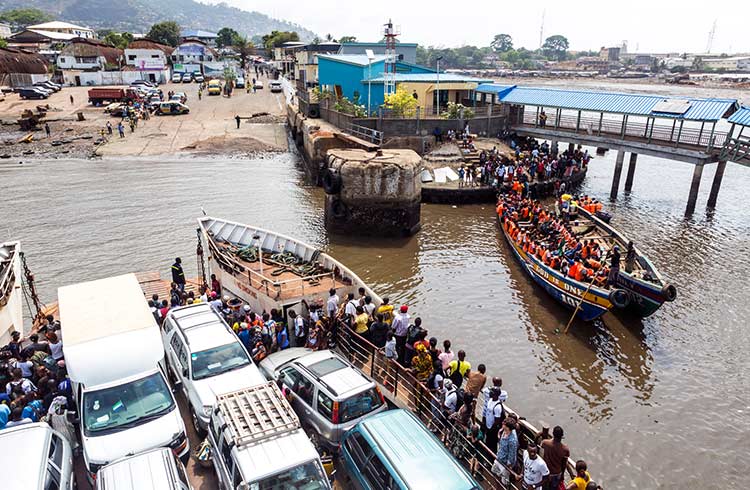
3. Road safety in Sierra Leone
The main roads between major cities such as Freetown, Bo, Kenema, Koidu, Makeni, Lungi, Kambia, and Kabala are paved and suitable for standard taxis and other vehicles. Secondary roads to provincial towns like Kamakwie, Moyamba, and Pujehun are dirt roads, but still graded and driveable in a taxi. However, other roads may be quite bad and require an off-road vehicle.
Between June to November, the rain can make dirt roads muddy and treacherous, even with off-road vehicles. If in doubt, ask around before you leave. Taxi and bike providers will often attempt even very bad roads with unsuitable vehicles. Hotels and guesthouses can often arrange transport for you.
Road blocks
Illegal roadblocks are sometimes put up by youths, who will often ask for a small "donation" for mending the road. Police may also stop you at checkpoints. This is almost always just posturing and an attempt to illicit a small bribe.
If stopped, your first instinct should be to act cordial and let your driver or Sierra Leonean companion sort the situation out. Otherwise, the best tactic is to act naive and friendly.
Humour generally goes down well and they will let you through after a couple of minutes without taking any money. If you must grease any palms, one or two dollars should suffice.
Asking for money to buy ‘water’ or ‘rice’ are euphemisms for small handouts to speed things up. Again, it is always good to keep a list of useful names and numbers you can call if things get confrontational.
If an official asks to see your passport, show them, but you should not allow them to take it somewhere where you cannot see it.
4. Crime in Sierra Leone
The official warnings say Sierra Leone is a high crime nation, with a significant risk of pick pocketing and theft. This is not the place to flash lots of cash or expensive phones.
Certain places are to be avoided or treated with caution. The nightclubs and bars of Lumley Beach and Aberdeen areas of Freetown are favorite haunts of criminals, muggers, pickpockets, and prostitutes.
Avoid the Lumley end of beach road, by the golf club, at night, as it is unlit and notorious for muggings. The area in and around the national stadium is also well-known for theft, especially during big events like music concerts or football games.
It is advised not to take large amounts of cash to such events and, if possible it is a good idea to get a cheap ($20) feature phone with a local SIM so that you can leave your expensive smartphone behind.
Exercise caution walking around central Freetown and the “PZ” area at night, as well as any roads that are not paved.
There are occasional fights between rival groups of youths in the central and eastern areas of Freetown around Siaka Stevens Street, Lightfoot Boston Street and Sir Samuel Lewis Road. These disturbances normally disperse quickly, but if you encounter an incident, you should leave the area immediately. Recent high inflation and rising fuel prices have occasionally seen small and peaceful protests.
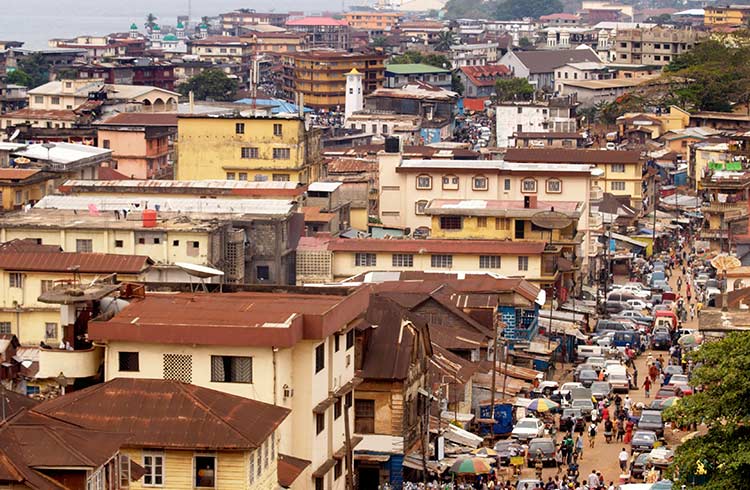
5. Are the beaches safe in Sierra Leone?
Travelers will tell you Sierra Leone has the most beautiful beaches in Africa. There are around a dozen along the peninsula, and most of them are almost deserted, at least during the week. This is one of the reasons many expect it to become the next destination to be developed for mass tourism. However, unlicensed deforestation and mass building along the beaches and up the surrounding mountains threatens to blight the landscape in the years to come.
Official warnings say you should not walk barefoot on Lumley and other beaches, where there can be trash, including needles. The Tourist Board has recently invested in beautifying the Lumley Beach area and removing trash.
There are strong currents near the shore and there are life guard or emergency services available. Whilst the seas close to the beach are general safe for strong swimmers, there have been numerous cases over the years of locals and tourists drowning due to strong currents. If in doubt, ask the locals and be careful before swimming alone.
Be cautious walking alone on remote beaches, and give the beach stroll a miss after dark.
6. Local knowledge
Foreign currency
ATM machines are available at the airport, around Freetown, and in most major cities. However, they are incredibly unreliable and even when working dispense a maximum $40 per withdrawal. The machines closest to the Central Business District by the Cotton Tree are the most reliable.
The government placed restrictions on foreign currency in 2019 and whilst they have eased up, note that it is a crime to use foreign currency such as dollars, for any transaction. This is treated as an offence. All physical cash transactions should be conducted in Leones.
Gems and diamonds
Be extremely careful about buying diamonds or other minerals. These are likely to be scams. Note that it is illegal to export precious stones without an export license from the government. Diamond and gem smuggling is treated similarly to drug trafficking – expect a lengthy jail term.
Sporting events
Sporting events and concerts at the national stadium can be enjoyable but pose a risk to personal security and safety. Pickpocketing is rife. Poor crowd control and overcrowding make the general stands - and sometimes even the VIP area – uncomfortable and unsafe. Rioting has occurred at previous events and could occur again in the future.
Always carry ID
You should carry ID (passport or residence permit) at all times, particularly when driving or taking a taxi or when moving outside of Freetown. Most checkpoints will not bother you, but occasionally they will ask for ID. Be cordial and comply with their instructions. Do not let anybody, even police officers, take your documents away from your sight as you may face a fight (or, more likely, a bribe) to get them back.
Respect the religion
Sierra Leone is predominantly a Muslim and care should be taken not to offend. Most Sierra Leoneans are very tolerant and the society is, in general, much more liberal than much of the developing world and the rest of Africa.
However, homosexual acts are technically illegal, so avoid showing any public displays of affection or speaking about your sexual orientation while traveling here.
Females should err of the side of caution with their dress, particularly when at the beach, and follow the leads of the local women.
What language do they speak in Sierra Leone?
The common language throughout Sierra Leone is Krio, a pidgin-like language based on English that is spoken by 95+% of the population. Though English literacy is low, you will usually be able to get your point across eventually. There are over a dozen regional languages and most people will speak at least two or three languages.
A little Krio can go along way: simply greeting people with ‘Ow di bodi?’ or ‘Kushe!’ can spark conversations, breed familiarity, and even reduce the cost of goods in the market. When getting into a taxi or other public space, err on the side of friendliness; it is common courtesy to greet fellow passengers when boarding.
Cost of living
Do not expect traveling in Sierra Leone to be cheap, especially if you expect comfort. Import duties mean that everything you want to buy in a supermarket is probably double what you would pay at home.
As a foreigner, you will often be charged at least more than a local would for the same item. Remember that everything is fair game for bargaining, and often they will double the price in the expectation that you will negotiate down.
If you are willing to truly live like a local, you can live relatively cheaply. Bowls of rice are available on almost every street corner for around SLL 3,000 (as of Jan 2020). Couscous, fried egg with bread, and a strong tea called Ataya are also widely available.
7. Health and disease in Sierra Leone
You will need a Yellow Fever vaccination certificate to enter Sierra Leone. You'll need it to leave, too. Some airlines won't let you board if you can't produce it. You'll certainly need to show it to border control agents at your next destination.
Malaria is common in Sierra Leone. Take prophylaxis before going and seek a malaria test at a hospital or pharmacy at any sign of fever. Sleep under a bed net and use mosquito spray where necessary.
Also, be aware of typhoid (vaccinations are available). Do not drink the tap water – you should boil or purify any water or drink bottled water. Most of the water sold in plastic packets is of poor and variable quality, although the Grafton brand is reputed as one of the better ones. There are occasional regional outbreaks of diseases like cholera or Lassa Fever. Try and research before you travel, although these are not a major cause for concern, particularly in the cities. Avoid eating bushmeat such as bat or monkey and avoid improperly cooked meat or fish.
There can be water shortages in the Freetown area, especially at the end of the dry season (March to June), which lowers the quality of the drinking water. If you suffer from diarrhea you should seek immediate medical attention.
Since sanitary conditions are poor and refrigeration is unreliable, avoid eating uncooked vegetables, salads, seafood, or meats at restaurants and hotels.
Listen to The World Nomads Podcast
Hear Amazing Nomad, Francis Tapon, talk about his experience exploring all 54 African countries. “And my favorite story was in Sierra Leone. There were four guys and they all had machetes and I actually invited them into the car.”
Related articles
Simple and flexible travel insurance
You can buy at home or while traveling, and claim online from anywhere in the world. With 150+ adventure activities covered and 24/7 emergency assistance.
Get a quote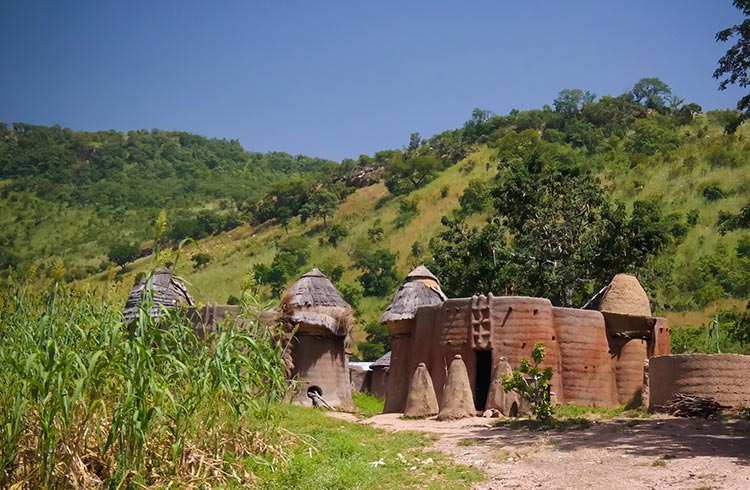
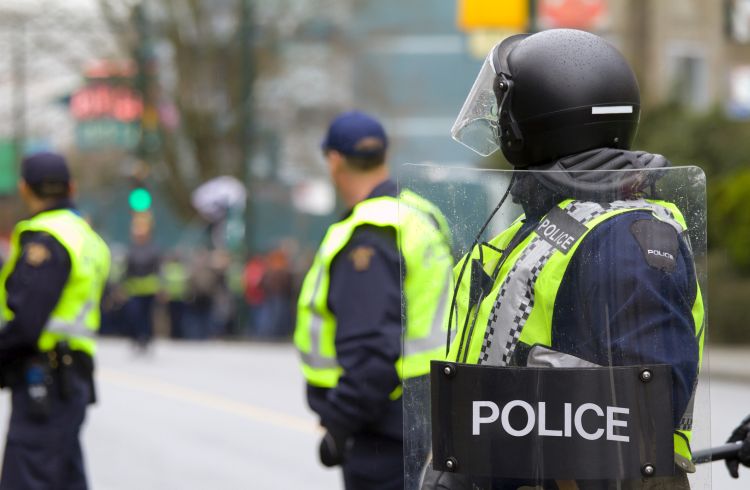
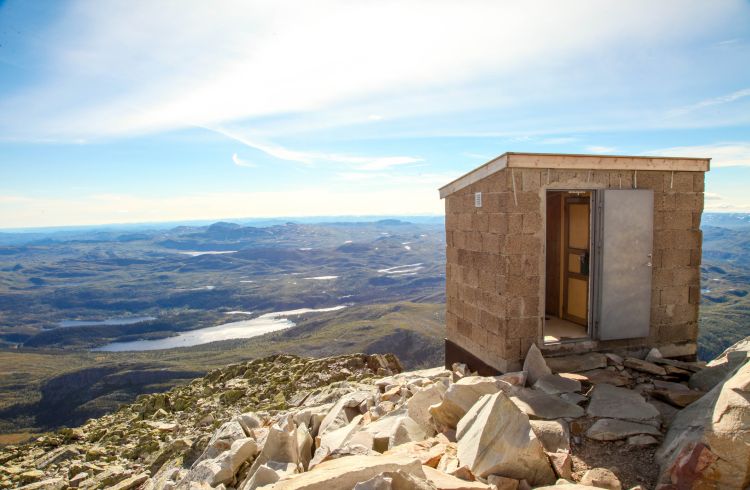
No Comments